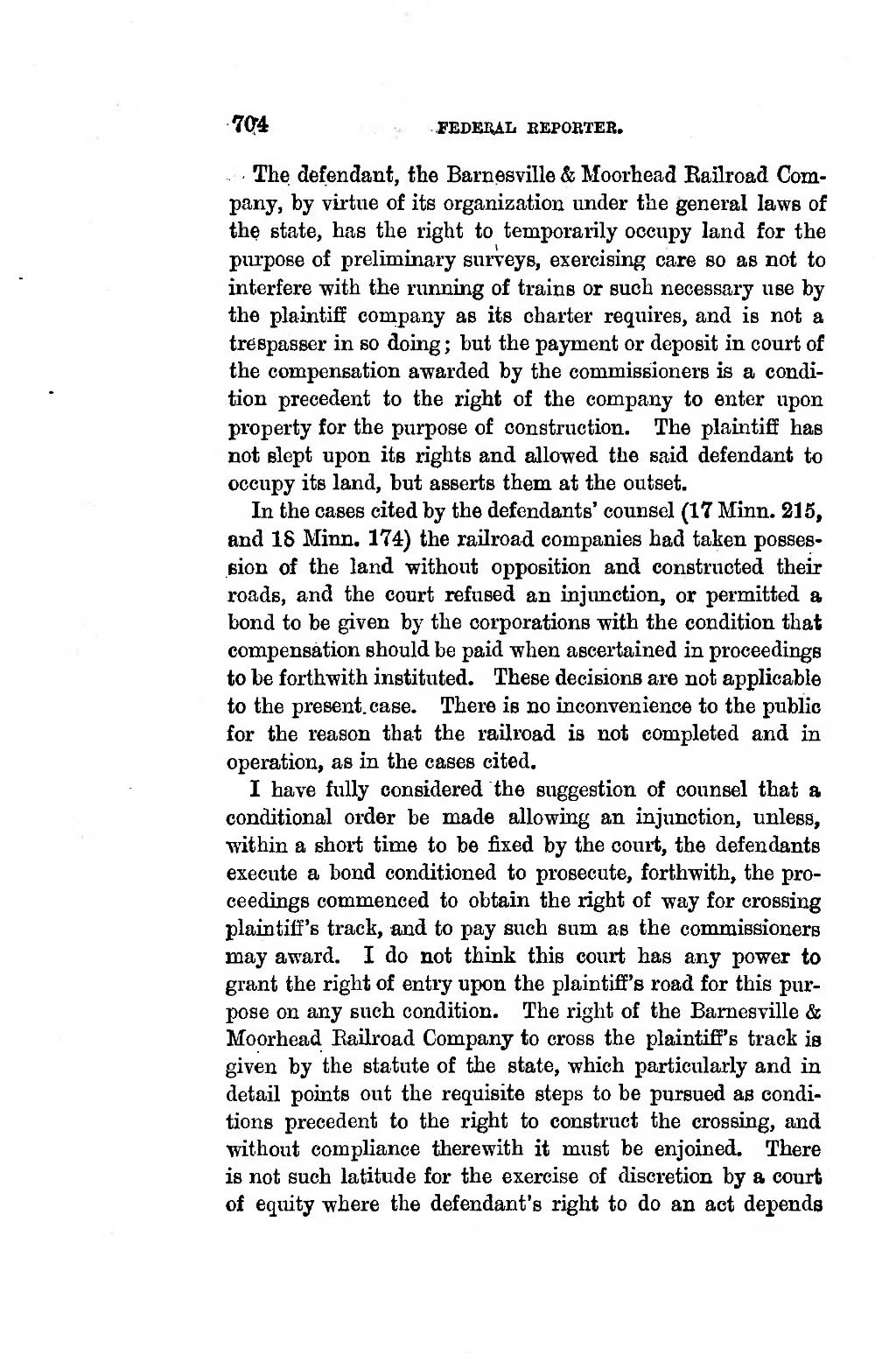704 FEDEIUIi BEPOETEB. �The defendant, the Barnesville & Moorhead Eailroad Com- pany, by virtiie of its organization under the general laws of the state, has the right to temporarily occupy land for the purpose of preliminary surveys, exercising care so as not to interfere with the running of trains or suoh necessary use by the plaintiff company as its charter requires, and is not a trespasser in so doing ; but the payment or deposit in court of the compensation awarded by the commissioners is a condi- tion precedent to the right of the company to enter upon property for the purpose of construction. The plaintiff has not slept upon its rights and allowed the said defendant to occupy its land, but asserts them at the outset. �In the cases cited by the defendants' counsel (17 Minn. 215, and IS Minn. 174) the railroad companies had taken posses- sion of the land without opposition and constructed their roads, and the court refused an injunction, or permitted a bond to be given by the corporations with the condition that compensation should be paid -when ascertained in proceedings to be forthwith instituted. These decisions are not applicable to the present, case. There is no inconvenience to the public for the reason that the railroad ia not completed and in operation, as in the cases cited. �I bave fully considered the suggestion of counsel that a conditional order be made allowing an injunction, unless, within a short time to be fixed by the court, the defendants execute a bond conditioned to prosecute, forthwith, the pro- ceedings commenced to obtain the right of way for crossing plaintiff's track, and to pay such sum as the commissioners may award. I do not think this court has any power to grant the right of entry upon the plaintiff's road for this pur- pose on any such condition. The right of the Barnesville & Moorhead Eailroad Company to cross the plaintiff's track is given by the statute of the state, which particularly and in detail points out the requisite steps to be pursued as condi- tions precedent to the right to construct the crossing, and ■without compliance therewith it must be enjoined. There is not such latitude for the exercise of discretion by a court of equity where the defendant's right to do an act depends ����
